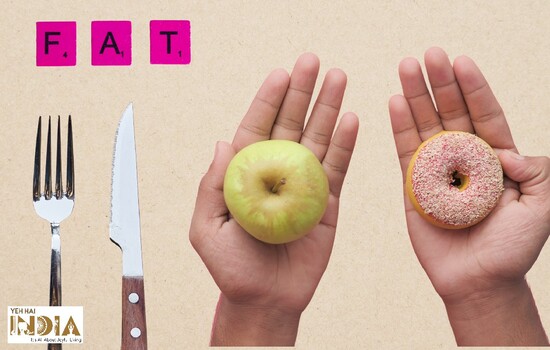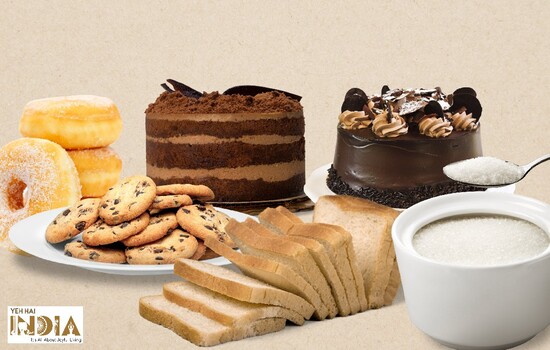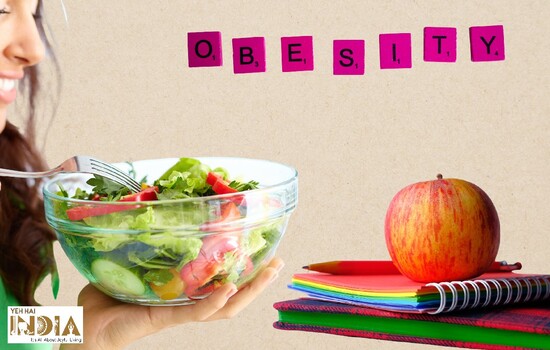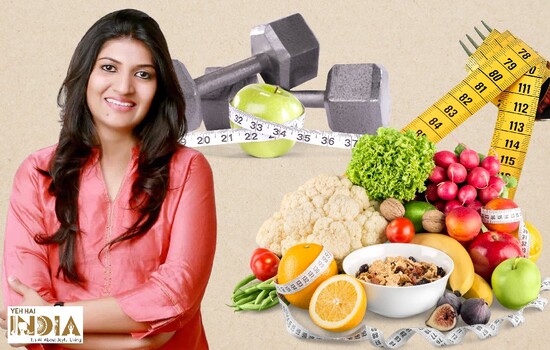Do not cut down dietary fats to lose weight!
Yes, you read that right!
Contrary to what most people believe, consumption of fats is not linked to weight gain. Hence, consuming foods rich in fats might not be the reason that makes you obese or overweight.
Weight gain and obesity have been one of the primary concerns of modern generation. Due to unhealthy diet maintenance and erratic lifestyles, we see ourselves quickly putting on kilos in a short time span.
Rigorous exercising or restricting food intake may not always work in your favour if your main goal is to lose weight or reduce fat accumulation in the body. This is because contrary to conventional thinking, there is absolutely no need to cut down fats from your diet to reduce fat accumulation in the body.
Though, this may sound controversial, here is what experts have to say on the role of fats in our body and obesity.
How Are Fats Digested In Our Body?

We often think that consuming fatty foods leads to weight gain due to their high calorie count. Truth, however is the opposite. Fat is a nutrient that is essential for our body’s vital functions.
Hence, consumption of fats is also important like any other nutrient intake and does not necessarily convert into body fat. Rather, it gets burnt up whenever we indulge in a strenuous activity or any physically demanding job.
Fats in our body serve as a storehouse of energy, but overaccumulation of fats in our body carries the risk of damaging our body.
Our daily consumption of food includes five nutrients – Carbohydrates, vitamins, minerals, fats and proteins. Vitamins and Minerals are called micro nutrients and require minimum intake, while carbohydrates, fats and proteins need more consumption.
It is vital to differentiate and disintegrate our understanding of fat as a ‘nutrient’ and fat as in ‘body fat’ that is stored in the body.
Post the body’s digestive process, the consumed fats often turn into fatty acids and human activity naturally converts them into energy units required for various activities. Hence, fats do not essentially convert into body fat.
Nevertheless, we often consume more carbohydrates. The digestive system breaks down digestible carbs into sugar, which then enters the blood stream as blood glucose. As the levels of sugar rise in the blood, the pancreas produces a hormone insulin that plays a role in maintaining optimum glucose levels in blood and various other metabolic functions.
Recommended Story – Tips For A Sound Sleep By Dietician Shilpi Goel
Role of Dietary Sugars in Weight Gain

It is vital to understand that human body requires a narrow range of sugar or insulin levels in blood. Nevertheless, excessive production of sugar levels prompts the cells to absorb blood sugar to convert into body fat.
Obviously, it is not the intake of fats that makes you put on weight but the excessive amount of sugar levels in the body that contributes to weight gain.
Addressing The Root Cause Of Obesity

When we consume excessive amount of foods that produce high sugar levels, given the limited requirement of blood sugar in the body, these convert into fat tissues. These tissues often get stored in the ‘store houses’ of the body.
These store houses include areas around liver, stomach and muscles. Hence, changing your meal pattern can adjust your body requirements and solve your body fat issues.
Firstly, it is important to cut down on foods that contain excessive sugar levels. The next time you eat biscuits, chocolates or grab a cola or any other caffeine loaded beverage, you must check the percentage of sugar in these foods.
You will notice that carbonated drinks often have as much as 30% sugar levels which could mean they are readily converted into fats. Most of these easily available groceries and other foods like sweets, pizzas, bread and burgers posess excessive sugar levels.
These food items are one of the main sources of fat accumulation in your body.
Further, we often notice that most of our food consumption is highly dependent on carbohydrates. Carbohydrates are divided into simple carbohydrates and complex carbohydrates.
Complex carbohydrates are present in food such as breads and pastas. Simple carbohydrates are in foods such as table sugar and syrups. Complex carbs include foods like pulses, vegetables, grains, nuts and seeds containing longer chains of sugar molecules than simple ones.
Hence, one must emphasize on consumption of fiber rich complex carbs like pulses, vegetables, grains, nuts and seeds and reduce simple carbohydrates to shed extra pounds.
Further, it does not necessarily mean that by cutting down on unnecessary carbohydrates and sugars in the body, one can consume any levels of fatty foods.
Fats are also divided into two main categories: trans-fats, healthy fats, saturated and unsaturated fats. Transfats are often human made fats and not easily processed by our body. One must ensure consumption of healthy fats such as Non-refined, cold-pressed oils and avoid saturated oils
Saturated cooking oils are usually made to increase their shelf-life through the process of hydrogenation. These fats are often unhealthy to the body. Olive oil, Nuts, seeds and avocados are often healthy fats and are unsaturated.
Conclusion:

If you are looking to cut down body fat, substitute trans-fats with healthy fats and ensure to maintain only adequate and requisite levels of sugar in the body. It is excessive consumption of sugars and not excessive consumption of fats, that make you obese and overweight.
Hope these diet tips help you in shedding flab effortlessly and make way for a healthier future.
Also Read – Mind Techniques for Treating Hormonal Imbalance- Tips by Dietitian Shilpi Goel










